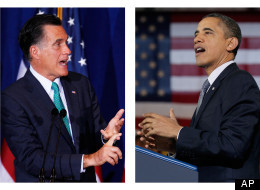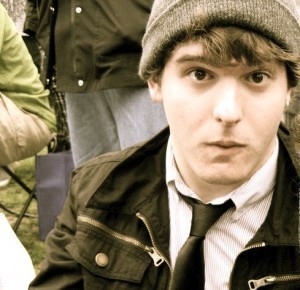That Time Religion Bizarrely Disappeared from the Electoral Discourse
It may literally embody a non-issue: even though debate moderators have tried to inject religion into the discussion, candidates have recently been laying low on spirituality. Sure, Mitt Romney offered his typical, odd “all children of the same God” consolation, but just as the conservative public seems to have settled on his Mormonism, the greater public seems to have settled that this isn’t a religio-centric election, and the candidates are taking that to mean they should avoid the topic at all costs.
Which is nice, but also not at all nice, for there are issues of religion that warrant national discussion and aren’t really getting it.
 In (seemingly) extraelectorate activity, there’s admittedly been some endorsement of pluralism from the White House as of late. The controversy surrounding “Innocence of Muslims” led to emphasis on the Obama administration’s dedication to “religious freedom”, wherein the president asserted that “the United States has a profound respect for people of all faiths.” An important message amid a cloud of Islamaphobia–one that would’ve been nice to see rehashed on the debate floor.
In (seemingly) extraelectorate activity, there’s admittedly been some endorsement of pluralism from the White House as of late. The controversy surrounding “Innocence of Muslims” led to emphasis on the Obama administration’s dedication to “religious freedom”, wherein the president asserted that “the United States has a profound respect for people of all faiths.” An important message amid a cloud of Islamaphobia–one that would’ve been nice to see rehashed on the debate floor.
On questions of religion that involve the tangible government endorsement of religion–most prominently the Parsonage exemption for religiously-affiliated institutions–the bipartisan candidates have both been largely silent. To really no surprise at all, the Green Party’s Jill Stein (of being-a-presidential-candidate-handcuffed-to-a-chair-in-a-warehouse-for-hours-for-peacefully-demanding-access-to-the-presidential-debates fame) is the only candidate who has even mustered a response to the policy: “I would agree with the principle here of separation of church and state, which would seem to say that we should not give special favors to employees of religious institutions.” A head-noddingly reasonable one, at that.
Not necessarily to endorse Dr. Stein, but to emphasize the game of the election: people don’t want to hear about religion right now, so frontrunners shut up about it, even if it’s relevant. And most importantly, how that game muffles issues of threatened pluralism and misguided state funding. We ought to remind our leaders that using your spirituality as a tool to garner votes, and challenging imminent threats to a diverse society, are very different indeed.
 Walker Bristol woke up this morning and realized, to his dismay, that he is the President of the
Tufts Freethought Society
and the Director of Communications for
Foundation Beyond Belief
. This is especially peculiar considering he grew up as a high school wrestler-pianist in North Carolina and intended to become Luke Skywalker for an undisclosed period of his life, eventually settling for a Star Wars tattoo. The Tufts Political Science and Religion departments suffer his enrollment. He writes about social activism and art in the
Tufts Daily
, and about religion in the 2012 election for
The Unelectables
. His diet consists of hummus. He tweets nonsense on all these fronts
@GodlessWalker
.
Walker Bristol woke up this morning and realized, to his dismay, that he is the President of the
Tufts Freethought Society
and the Director of Communications for
Foundation Beyond Belief
. This is especially peculiar considering he grew up as a high school wrestler-pianist in North Carolina and intended to become Luke Skywalker for an undisclosed period of his life, eventually settling for a Star Wars tattoo. The Tufts Political Science and Religion departments suffer his enrollment. He writes about social activism and art in the
Tufts Daily
, and about religion in the 2012 election for
The Unelectables
. His diet consists of hummus. He tweets nonsense on all these fronts
@GodlessWalker
.



